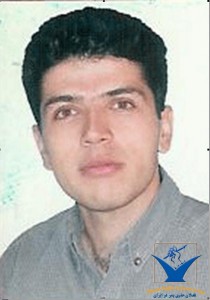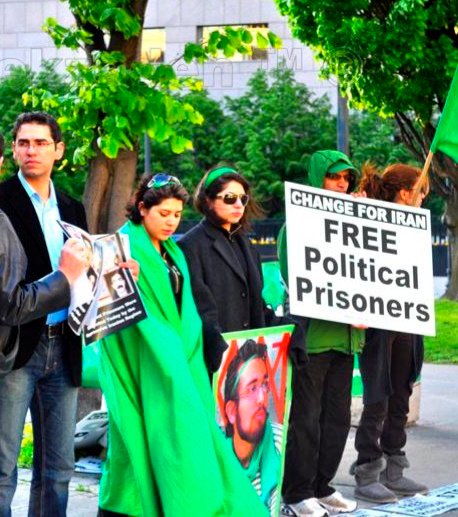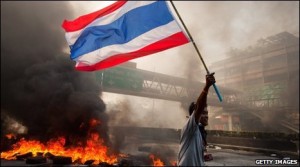
1920 GMT: Protest Videos.
We've now posted three videos of today's anti-Ahmadinejad protest at Shahid Beheshti University and a video of a student walkout at Elm-o-Sanat University over the speech of a Government official.
1910 GMT: Executions --- A Correction. An Iranian activist puts out
an important note: Mehdi Islamian, one of the five Iranians hung on Sunday, was not a Kurd. Islamian's brother and three other people were convicted of a bombing in Shiraz and accused of connections with monarchists. The activist claims that Islamian's "crime" was money given to his brother.
NEW Latest Iran Video: Protest Against Ahmadinejad at Shahid Beheshti University (10 May)
NEW Iran Background Video: Protest in Kurdistan Over Political Prisoners
Iran: Farzad Kamangar’s Last Letter “Is It Possible to Teach and Be Silent?
Iran First-Hand: Assessing Life and Opinions in Tehran (Majd)
Iran, Meet Kafka: The Web of Internet Censorship Catches All (Farokhnia)
The Latest from Iran (9 May): 5 Iranian Kurds Executed
1900 GMT: Mousavi on the Executions. Mir Hossein Mousavi
has issued a statement on Sunday's execution of five Iranian Kurds (
English translation):
The sudden execution of five of the citizens of this country without giving any clear explanations regarding their charges, prosecution procedure and trials to the people, is just similar to the unjust trend that in the recent months have led to the surprising sentences for a lot of caring women, men and citizens of our country.
When the Judiciary shifts its position from supporting the oppressed toward supporting authorities and those in power, it is hard to stop people from judging that the judiciary sentences are unjust. How is it that today the courts pass on those who ordered and committed the crimes of Kahrizak Prison, [the attacks on Tehran] University dormitories, Sobhan residence [3], the days of 15th and 20th of June, and Bloody Ashura [27 December], and closed the massive corruption cases before opening them and then suddenly on the eve of the month of Khordaad [June], the month of consciousness and seeking justice, hangs these five individuals with so many unanswered questions? Is this the Alavi [those who follow the first Imam of Shi'a, Imam Ali] justice that you were after?
1625 GMT: Rafsanjani Watch. Former President Hashemi Rafsanjani
has declared that he still believes the solutions he presented in his Friday Prayer address last July --- the last time he spoke from the Tehran podium --- still provide an exit from the current post-election conflict.
Meeting former governors, Rafsanjani said adherence to the Constitution was the most important basis for "moving forces" towards a resolution.
A reminder of
Rafsanjani's 17 July speech, which was accompanied by mass protests against the handling of the post-election conflict by the Government:
The most important thing that has happened is that the trust that brought the people
to vote in such large number is not there anymore.
We need to return this trust.
We all need to follow the law. And I’m talking about the government, the parliament, the Islamic Courts and the security forces.
We need to follow the laws.
All problems can be solved if we only follow the framework of the laws.
We need to create an environment where all sides could come together and discuss their issues.
We need to be able to sit down like brothers and sisters and talk about our differences.
Unfortunately,
The chance that was given to the Guardian Council of five days to get people together and regain their trust was not used.
That is not there anymore.
But we still have time to unite.
We shouldn’t imprison our own people,
We should let these people return to their homes,
We shouldn’t let our enemies laugh at us because we’ve imprisoned our own people.
We should sit together with mourners,
And we should console them,
And bring them back closer to the system.
We should not be impatient now.
Please do not censor media outlets that have legally obtained permits.
Let them do what they want to do legally.
Allow a peaceful and friendly environment to prosper.
We are all together in the Islamic Revolution,
We’ve all spent years in suffering,
We’ve all given martyrs for the cause of the revolution,
This unity needs to fostered.
I’m hopeful that we will be able to achieve this unity in the future,
And I’m hopeful we will get out of this situation,
Based on the wishes of the people,
And consensus among the leaders.
1500 GMT: The Executions. Education International has issued
a statement that it is "deeply troubled to hear reports that Iranian teacher trade unionist Farzad Kamangar was among five people who were summarily executed in secret on 9 May". The International Trade Union Confederation
has also condemned the hanging.
1430 GMT: Political Prisoner Watch. Sixty professors from the Tehran University of Medical Sciences
have written to the university's president, calling for the release of medical student Maryam Abbasinejad from prison.
Abbasinejad was arrested a day after Ahmadinejad’s sudden appearance at the university on 1 May. There is no information on her physical condition or the reason behind the arrest.
1420 GMT: Getting Rid of Bad Books. The Supreme Leader, meeting officials of the Islamic Ideology Dissemination Organization, has urged authorities to
prevent the publication of books which contradict Iran's religious and cultural values: "The country's cultural atmosphere, especially in the field of book publishing, should be protected as there are some who seek to distort history and spread issues which are against our values."
Ayatollah Khamenei's remarks come after reports that the Tehran Book Fair barred works by figures such as Ayatollah Mohammad Beheshti, a hero of the Islamic Revolution, Grand Ayatollah Sane’i, and Grand Ayatollah Montazeri. (Press TV notes simply, "The meeting [with the IIDO] comes as the Iranian capital of Tehran is hosting an international book fair which runs until May 15.")
1415 GMT: "Hardline" Editor Acquitted. Hossein Shariatmardari, the editor of the "hardline"
Kayhan,
has been acquitted by a Tehran court of all charges of libel, brought by, amongst others, activists such as Shirin Ebadi and Shadi Sadr and journalist Emaduddin Baghi.
1410 GMT: Maziar Bahari, Master Criminal. An EA correspondent reports that Iranian-Canadian journalist Maziar Bahari was today,
in absentia, has been given a sentence of 13 years imprisonment and 74 lashes by the Revolutionary Court of Tehran. This is the longest jail term imposed on a journalist in the post-election conflict.
Bahari was detained in Iran for four months after the election but was released in October. He returned to the United States, although he still has family in Iran.
1345 GMT: Kicking Out the Oil Companies (This Time We Mean It). Iran has issued
a new two-week ultimatum to Royal Dutch Shell and the Spanish company Repsol after the expiry of a previous ultimatum last month.
Referring to long-standing contracts for development of natural gas fields, Reza Kasaiezadeh, director of the National Iranian Gas Export Company, said, "The oil ministry has now issued an ultimatum to Shell and Repsol, holding them responsible to determine the situation surrounding contracts on South Pars phases 13 and 14 over a period of two weeks."
On Saturday, Minister of Oil Masoud Mirkazemi had threatened that
Iran will expel foreign firms for delaying development, but he did not a specific company. Shell, citing the prospect of Western sanctions, suspended operations in South Pars earlier this year.
1210 GMT: What Demonstrations? Islamic Republic News Agency has posted
an article on President Ahmadinejad's speech at Shahid Beheshti University praising Iran's "astonishing speed of scientific progress". Nothing, however, on the student demonstration that greeted news of the visit.
1155 GMT: MediaWatch. Non-Iranian media are gradually picking up on the significance of Sunday's executions. The BBC
has now posted a short article, and
The Guardian of London goes further with
references to demonstrations (although the newspaper's story, "Kurds to protest after Iran executions", misses the fundamental point that many Iranians who are not Kurdish may be demonstrating and linking the hangings to wider post-election issues of injustices and abuses).
1150 GMT: Silent Demonstrations at Universities?
Rah-e-Sabz writes that
silent protests against the executions of the Iranian Kurds are planned for Wednesday and Thursday at Tehran University.
1140 GMT: We've posted two claimed videos of
a protest against President Ahmadinejad's visit to Shahid Beheshti University in Tehran.
1000 GMT: Add Toronto to the list of cities where protests took place against Sunday's executions.

0810 GMT: Mousavi "An Enemy of God". Gholam-Hossein Elham, a member of the Guardian Council, has reportedly said that
Mir Hossein Musavi is a "mohareb" (enemy of God).
Elham, quoted by Fars News from a speech at a university, would be the most significant Government official so far to make the allegation --- which carries the death penalty under Iranian law --- against Mousavi.
0800 GMT: Diversion? Amidst the uproar over the execution of five Iranian Kurds as enemies of the state, Speaker of Parliament Ali Larijani has tried to hammer home the themes of Iran's defence against foreign-supported "terrorism". Speaking at the Organization of the Islamic Conference in Turkey, Larijani claimed
direct US backing and involvement of groups operating out of Pakistan.
Larijani's comments are made in the context of the recent capture of Abdolmalek Rigi, the leader of the Baluch insurgent group Jundullah.
0700 GMT: MediaWatch.
Nazila Fathi writes in both the print and versions of
The New York Times this morning about the execution of the five Iranians, taking the line: "Although the authorities announced that the five people executed Sunday had been found guilty of carrying out fatal bomb attacks, the executions were widely seen as intended to discourage people from rallying against the government on June 12 [the anniversary of the Presidential election."
The Washington Post has
a shorter, muddled Web-only piece by Thomas Erdbrink. For some reason, the article distinguishes between the hangings of four of the Kurds and the execution of Mahdi Islamian, leading to the distorted headline, "Reported executions of four Kurds could increase tensions in Iran". The report is largely drawn from the account of Iran's Islamic Republic News Agency, so there is no consideration of wider political issues.
0630 GMT: Nuclear Front. In advance of the visit by Brazilian and Turkish leaders to Iran which may signal a brokering of an uranium enrichment deal, Tehran
has restated its willingness to reach an arrangement.
The head of Iran'a atomic energy organisation, Ali Akbar Salehi, told reporters, "Some countries have been seeking to impose a series of conditions on Iran, but our condition is receiving concrete assurances."
Salehi continued, "Our stance toward the nuclear fuel swap has not changed. We will give 3.5 percent enriched uranium and receive 20 percent enriched fuel. Our purpose (of continuing negotiations with the West) is to give the Western countries an opportunity to save face and find a way out of the current situation."
0515 GMT: Crackdown on Kurdish Teachers. An Iranian activist reports that four leading members of the Kurdestan Teachers Union
were arrested by Iranian intelligence on Sunday.
0500 GMT: It has been a long time since a single story from Iran galvanised reaction outside the country. Iranians and activists throughout the world responded with sadness and fury to the Sunday morning news that five Iranians --- Farzad Kamangar, Ali Heydarian, Farhad Vakili, Shirin Alamhouli, and Mehdi Eslamian --- had been executed for alleged bombings and/or membership of the Kurdish organisation PEJAK.
Demonstrations took place in London, Berlin, Paris, Milan and Hamburg, with dozens arrested at the French rally.
But what will the response be inside Iran? Will the hangings provoke public anger or will any display be muted? We have posted
video of a demonstration in Sanandaj in Kurdistan in July 2008 over detentions, including that of Farzad Kamangar, who was hung on Sunday. Families of the executed reportedly called for a protest in front of Tehran University at 11 a.m. local time (0600 GMT).
 Thursday, May 20, 2010 at 16:22
Thursday, May 20, 2010 at 16:22  The BBC updates on the latest politics around blame upon North Korea for the torpedoing of a South Korean warship two months ago:
The BBC updates on the latest politics around blame upon North Korea for the torpedoing of a South Korean warship two months ago:




